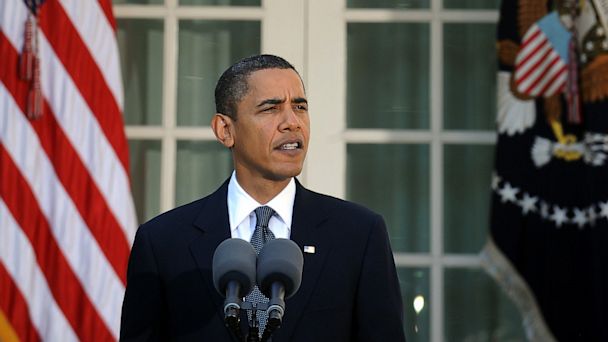President Obama, Nobel Peace Prize Winner, Back on War Footing

Credit: Jewel Samad/AFP/Getty Images
When President Obama traveled to Oslo, Norway, to accept the Nobel Peace Prize in 2009, even he wasn't sure what he had done to deserve it.
"Perhaps the most profound issue surrounding my receipt of this prize is the fact that I am the commander-in-chief of the military of a nation in the midst of two wars," Obama said in his acceptance speech.
It's only been five years since then, but already Obama is facing a second decision about whether to commit U.S. armed forces to a conflict oversees.
Though he says he hasn't made a decision yet, Obama is considering using military force against the regime of Syrian President Bashar al-Assad after the U.S. accused Assad's forces of using chemical weapons against Syrians in an attack on Damascus last week.
Get all of ABC News' coverage of the Crisis in Syria HERE
In 2011, Obama announced that the U.S. and international partners would use force to defend the Libyan people from an imminent attack by then-dictator Muammar Qaddafi. But in doing so, he wanted to make it clear that it wasn't his first choice.
"This is not an outcome that the United States or any of our partners sought," Obama said in 2011.
"I think most presidents are or would be [reluctant]," said Stephen Hess, a presidential scholar at the Brookings Institute. "Going to war is not a happy option for people."
Obama is also dogged by the irony that his allure to liberals in the Democratic primary when he ran for president in 2008 stemmed largely from his opposition to the Iraq war.
Then, Obama made the argument that the president doesn't have the power to authorize a military attack without an imminent threat to the nation.
Now, Obama's argument for a potential attack in response to Syria's use of chemical weapons is that such an attack would "send a shot across the bow" to the regime and potentially have a "positive impact on our national security over the long term."
The difference, Hess said, is that now Obama is president and with that comes some new information and even more difficult decisions.
"First of all, you get information you never had before and you get to see the world in a different way," said Hess, a former aide to Presidents Eisenhower, Nixon, Ford and Carter.
Obama never gave his peace prize back but, his critics say, now that the U.S. is potentially on the brink of launching a military strike against Syria, Obama probably should.
"There's a growing sense that the Nobel Peace Prize has been tarnished by the award to Obama," said Norman Solomon, whose website RootAction.org launched a petition earlier this year for Obama to give back the award. "You might compare it to extreme grade inflation at this point."
"What's next? Are we going to give a nutrition award to McDonalds?" he asked.